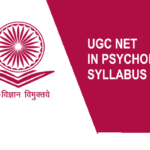Academic psychology in India has undergone a remarkable journey, evolving through distinct phases that mirror the socio-political landscape of the country. From its nascent stages in the pre-independence era to the contemporary emergence of Indian psychology, the discipline has grappled with diverse challenges and opportunities. This comprehensive exploration traces the trajectory of academic psychology in India, focusing on key epochs such as the pre-independence era, post-independence era, the 1970s, 1980s, and 1990s, ultimately leading to the emergence of Indian psychology in the 2000s. Throughout this narrative, we delve into critical issues such as the colonial encounter, postcolonialism and psychology, and the persistent struggle for a distinct disciplinary identity.
I. Pre-Independence Era:

In the pre-independence era, academic psychology in India was largely influenced by colonial forces. The establishment of psychology departments in universities was a testament to the Western educational model introduced during British rule. However, these early developments were marked by a colonial gaze, wherein the curriculum and research priorities were shaped by Western perspectives, often neglecting indigenous knowledge systems. The focus was primarily on psychological testing and understanding the ‘native mind’ through Eurocentric lenses.
II. Post-Independence Era:

With the dawn of independence in 1947, India underwent significant social and political changes, and academic psychology reflected this shift. The post-independence era witnessed a renewed emphasis on addressing the socio-cultural issues unique to the Indian context. Scholars sought to unravel the complexities of the diverse population, exploring the impact of culture, caste, and socio-economic factors on psychological processes. This era marked the beginning of a conscious effort to decolonize psychology and integrate indigenous perspectives into the academic discourse.
III. 1970s: The Move to Addressing Social Issues:

The 1970s were a crucial period for academic psychology in India as the discipline began to engage more directly with social issues. Psychologists started examining the impact of social inequalities, discrimination, and marginalization on mental health. The era saw a growing interest in applied psychology, with research addressing real-world problems such as poverty, education, and social justice. This shift marked a departure from the earlier emphasis on individualistic approaches towards a more socially conscious and contextually relevant psychology.
IV. 1980s: Indigenization:

The 1980s witnessed a significant push towards the indigenization of psychology in India. Scholars recognized the need to develop theories and methodologies that resonated with the Indian cultural milieu. This period saw the emergence of indigenous psychology as a distinct sub-discipline, focusing on the study of psychological phenomena within the Indian context. The development of culturally sensitive assessment tools and the exploration of traditional healing practices contributed to the growing recognition of the importance of indigenization in academic psychology.
V. 1990s: Paradigmatic Concerns, Disciplinary Identity Crisis:

The 1990s presented a complex landscape for academic psychology in India. While there were strides in indigenization, the discipline grappled with paradigmatic concerns and a persistent identity crisis. The influence of Western psychological theories continued to dominate academic discourse, raising questions about the authenticity and relevance of indigenous approaches. The tension between the global and the local, coupled with the challenges of establishing a distinct disciplinary identity, became palpable.
VI. 2000s: Emergence of Indian Psychology in Academia:

The 2000s marked a turning point for academic psychology in India, as the discipline began to assert its identity on the global stage. Scholars actively contributed to international research, showcasing the richness and diversity of Indian perspectives. The emergence of Indian psychology as a recognized field within academia was characterized by a fusion of indigenous and global insights. Researchers explored issues such as cultural psychology, positive psychology, and the intersections of tradition and modernity.
Critical Issues:
a. The Colonial Encounter:
The colonial encounter remains a persistent shadow over the history of academic psychology in India. The initial stages of the discipline were shaped by a Eurocentric worldview, marginalizing indigenous knowledge systems and perpetuating a Western-centric understanding of human behaviour. The legacy of this encounter continues to influence the discipline, necessitating ongoing efforts to decolonize and diversify psychological research.
b. Postcolonialism and Psychology:
The postcolonial era ushered in a reevaluation of psychological theories and methodologies in the Indian context. Scholars grappled with the need to deconstruct colonial legacies, challenge Eurocentrism, and create a psychology that resonated with the diverse realities of the country. Postcolonial perspectives became instrumental in critiquing and reshaping the narratives within academic psychology, encouraging a more inclusive and culturally sensitive approach.
c. Lack of Distinct Disciplinary Identity:
One of the persistent challenges faced by academic psychology in India is the lack of a distinct disciplinary identity. The discipline often finds itself at a crossroads, torn between the influence of Western theories and the imperative to develop indigenous frameworks. The quest for a unique identity has led to a continual negotiation between global and local perspectives, necessitating a delicate balance to maintain relevance in both contexts.
Conclusion:
The historical journey of academic psychology in India is a tapestry woven with threads of colonial influences, postcolonial reflections, and the constant pursuit of a distinct identity. From the pre-independence era to the emergence of Indian psychology in the 2000s, the discipline has navigated complex terrain, evolving in response to changing societal needs and academic paradigms. As we reflect on this journey, it is evident that the challenges and opportunities faced by academic psychology in India have contributed to the development of a dynamic and contextually relevant field that continues to evolve and shape the understanding of human behaviour in diverse cultural landscapes.








